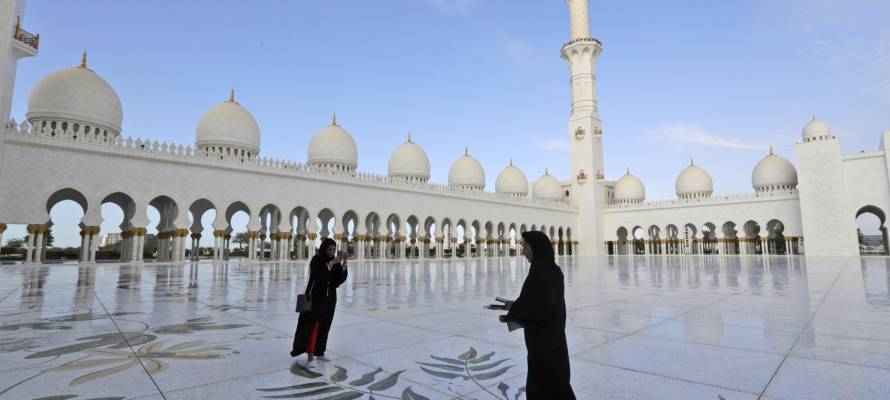American rabbis and Christian evangelical figures are meeting with leaders from Muslim nations to promote recognition of Israel in the region.
By: Associated Press
Against the backdrop of the first papal visit to the Arabian Peninsula is an interfaith conference that includes prominent U.S. rabbis and Christian evangelicals, who are seeking stronger recognition of Israel through closer ties with Muslim figures and Arab leaders.
These merged interests come as Arab leaders look to strengthen ties with the Trump administration through his evangelical base of supporters. It’s also happening as Gulf Arab states take their once-private outreach to Israel more publicly in the absence of peace talks between Palestinians and Israelis.
Rabbi Marc Schneier of New York has been a pioneer in building ties between Jews and Muslims in the U.S. and the Middle East. Through greater interreligious dialogue, he’s pushed for closer relations between Muslim leaders and the state of Israel.
“I think there is a very, very keen interest in bringing Islam and Judaism together, but our role as Jewish leaders — we also need to sensitize and educate and expose both Gulf leaders and Muslim interfaith leaders to the fact that Israel again is not a political dimension for the Jewish people; it’s at the very core of our religion,” he told The Associated Press in an interview on the sidelines of Pope Francis’ visit to the United Arab Emirates.
Schneier has carved a foothold in the region to deliver that message. The king of Bahrain has appointed him as a special adviser and he’s been hosted by Qatar’s ruler in Doha. He also has links to Saudi Arabia’s interfaith center in Vienna and has been invited to Saudi Arabia to meet the crown prince.
He even boasts that he has helped ensure kosher hot dogs will be available to soccer fans attending the World Cup in 2022 in Qatar.
Over the weekend, he delivered a sermon to a congregation of expatriate Jews in an unmarked synagogue in Dubai — a move that not only underlined growing acceptance and recognition of Jewish life in Gulf Arab states but also of the warming of ties between these nations and Israel.
“I remember when I first entered the fray here in the Gulf, there was a tendency to bifurcate Israel and Judaism, to break out Israel from Judaism,” Schneier said, explaining that he used to hear people in the region say: “We have nothing against Jews. It’s Israelis and Zionists that we have a problem with.”
“I no longer hear that rhetoric. It’s no longer part of the conversation,” he said.
For Saudi Arabia, the UAE and Bahrain, which still feel stung from the 2015 nuclear deal with rival Iran that was struck by then-U.S. President Barack Obama and other world leaders, building ties with the Trump administration and Israel are seen as ways to counter Tehran’s footprint in regional conflicts.
At the Core of Their Faith
For some U.S. evangelicals, support for Israel is at the very core of their faith.
Last year, a delegation of top Christian evangelicals, including American-Christian Zionist leaders, traveled to Riyadh to meet the crown prince — the first-ever meeting of its kind.
The delegation to Riyadh was led by Israeli-based communications strategist Joel Rosenberg and included former Minnesota Rep. Michele Bachmann; Jerry Johnson, the president and CEO of National Religious Broadcasters; and Michael Little, former president and COO of The Christian Broadcasting Network, among others.
CBN described it as a meeting “filled with both political controversy and spiritual opportunity.”
The group issued a statement after the meeting saying they were “encouraged by the candor of the two-hour conversation” and were looking forward to continuing the dialogue.
The Riyadh meeting came about after the crown prince had met with top Jewish American leaders in the U.S. in April. He’d also been quoted speaking about Israelis’ “right to have their own land” during his tour of major U.S. cities.
Just before their Saudi stop, the evangelicals were in Abu Dhabi meeting with its crown prince, Sheikh Mohammed bin Zayed Al Nahyan.
They’d previously already met with Egypt’s President Abdel-Fattah el-Sissi.
